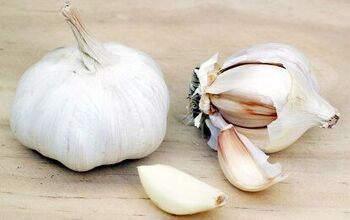The Truth About Vegetarian Diets And Dogs

Vegetarian dogs can be a contentious issue for some, but the fact is that dogs can eat a vegetarian or vegan diet – but (and that’s a big BUT), it must be done very carefully. You must make sure they get a balanced diet with proper nutrition. Whether your dog should go on a vegetarian diet is a personal choice; but even so, it’s most often not the healthiest choice for your pooch if you’re not diligent about adding the necessary vitamins and minerals to his meals. If you’re an ethical vegetarian or vegan, the likelihood is that you don’t want to be giving your hard-earned dollars over to the meat industry. Even those who aren’t vegetarian might want to consider whether there are any health or environmental benefits.
Related: Top 10 Healthy Vegetables For Dogs
Why Should I Feed My Dog a Vegetarian Diet?
The main reason why people feed dogs a vegetarian or vegan diet is because they’re vegetarian or vegan themselves and they’d like to feed their canine companion in a way that lines up with their ethics. Ponder on this for a moment: Why is your dog a beloved family member but other, equally intelligent and loveable, creatures are food? Your own diet aside, there are a couple of other reasons why you might consider feeding your pooch vegetarian food. Animal agriculture is a huge contributor to global warming, which should be important to anyone concerned with environmental issues. What’s more, the quality of meat in a lot commercial dog food is poor. Even the meat used in many so-called “premium” brands isn’t fit for human consumption. This means it may have come from diseased animals or contain potentially unsafe drugs.
But, Isn’t My Dog a Carnivore?
Dogs belong to the order “Carnivora” but, confusingly enough, they’re actually omnivores. Therefore, just like a human, your dog can live on a vegetarian diet. Dogs have to ability to turn some amino acids (which are the building blocks of protein) into other ones that are usually found in meat. As such, they can technically get everything they need without chowing down on meat. Of course, this is just anecdotal evidence, but one of the world’s oldest dogs – a border collie from the UK named Bramble – lived the entirety of her 27 years on this planet eating a vegan diet.
Related: Benefits Of A Grain-Free Diet For Your Dog
Will My Dog Miss Eating Meat?
If your dog is used to eating meat, he might miss it at first, but dogs are extremely adaptable and it won’t be long until he loves his new diet. As with any dietary change for dogs, there should be a transitional period where you gradually phase out his old food and start feeding him more and more of his new food until he’s become accustomed to his new diet.
What About Protein?
There seems to be a pervasive myth that vegetarian diets are lacking in protein, but this doesn’t have to be true. Eggs are actually one of the most complete and bio-available proteins around. But, anyone who wants to feed their dog a vegan diet isn’t going to be stuck for choices, either. Amazing plant-based protein sources include beans and other legumes, tofu, quinoa and whole grains.
Will My Dog Need Any Supplements?
Some vitamins and minerals, such as vitamin D, vitamin B12 and taurine are difficult or impossible to find in a vegetarian or vegan diet. However, there are a number of commercially available vegetarian and vegan kibbles and wet dog foods on the market. Like a non-veggie pet food, these should be complete foods and contain all the vitamins and minerals that your dog needs. On the other hand, if you choose to feed your pooch a home cooked diet, it’s essential that you add supplements to it. Vegedog is a supplement that’s specially formulated for mixing with homemade vegan or vegetarian dog food to turn it into a balanced meal.
Consult with a veterinary nutritionist who can analyze your commercial or homemade vegetarian pet diet and make recommendations for additional health safeguards. As well, schedule more frequent wellness exams, including blood work, with your family veterinarian – at least twice a year, even for young pets eating vegetarian diets.
Are you pro or con vegetarian diets for dogs? Is your dog on a vegetarian or vegan diet? What is your dog’s health compared to when he was on a meat-based diet? Leave all your thoughts in the comment section below.

Lauren Corona is a freelance writer from merry old England. She specializes in writing about dogs and other critters. Lauren lives near Oxford, with her gorgeous Doberman, Nola. When she's not tapping away at the keyboard, you'll find her walking in the woods with Nola-dog, raising money for the Oxfordshire Animal Sanctuary, cooking vegan food, making zines and writing about herself in the third person.
More by Lauren Corona























